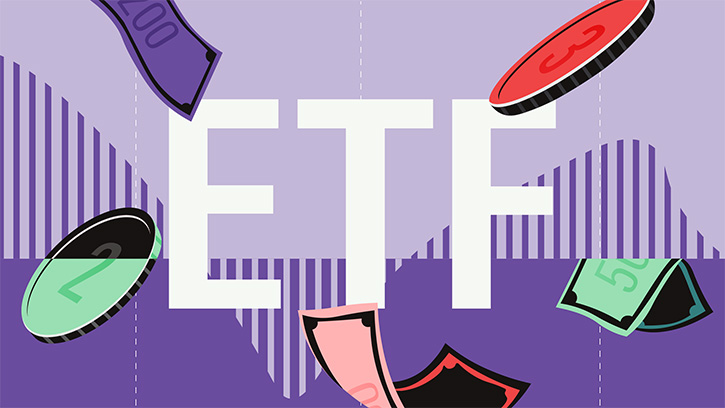The information contained within is for educational and informational purposes ONLY. It is not intended nor should it be considered an invitation or inducement to buy or sell a security or securities noted within nor should it be viewed as a communication intended to persuade or incite you to buy or sell security or securities noted within. Any commentary provided is the opinion of the author and should not be considered a personalised recommendation. The information contained within should not be a person's sole basis for making an investment decision. Please contact your financial professional before making an investment decision.
 How to Invest in Gold Right Now
How to Invest in Gold Right Now
We look at funds, stocks and ETFs to gain exposure to gold as it hovers close to record highs
 The Best-Performing ETFs of the Month
The Best-Performing ETFs of the Month
Amundi MSCI Turkey UCITS ETF and iShares MSCI Turkey UCITS ETF were among the best-performing ETF...
 Markets Brief: Is It Really a Surprising Quarter for Earnings?
Markets Brief: Is It Really a Surprising Quarter for Earnings?
As earnings season draws to a close, we can see gamesmanship by large companies managing expectat...
 MICUK: Private Markets AUM Growth Will Remain Resilient
MICUK: Private Markets AUM Growth Will Remain Resilient
PitchBook's head of private markets research says there are plenty of tailwinds for private equit...
 Palantir Earnings: AI Platform Drives Strong Start to 2024
Palantir Earnings: AI Platform Drives Strong Start to 2024
Shares in the data firm remain overvalued despite stock sell-off after earnings
 Are FTSE Mining Companies Cheap Right Now?
Are FTSE Mining Companies Cheap Right Now?
Mining companies are operating in a challenging environment but could now be the time to top up o...
 Advice for George Osborne and Stock Market Regrets
Advice for George Osborne and Stock Market Regrets
THE WEEK: Morningstar columnist Rodney Hobson provides two pieces of advice to George Osborne, an...
 How to Find Solid Dividend-Paying Stocks
How to Find Solid Dividend-Paying Stocks
Businesses that have competitive advantages within their industry are good candidates for dividen...
 10 Top-Performing Funds in the UK
10 Top-Performing Funds in the UK
Morningstar reveals the top 10 best performers over the last five years
 Fund Research: Europe’s Shining Stars
Fund Research: Europe’s Shining Stars
Morningstar OBSR reveals the top funds for investors seeking exposure to European equities
 How to Invest in Gold Right Now
How to Invest in Gold Right Now
We look at funds, stocks and ETFs to gain exposure to gold as it hovers close to record highs
 The Best-Performing ETFs of the Month
The Best-Performing ETFs of the Month
Amundi MSCI Turkey UCITS ETF and iShares MSCI Turkey UCITS ETF were among the best-performing ETF...
 Markets Brief: Is It Really a Surprising Quarter for Earnings?
Markets Brief: Is It Really a Surprising Quarter for Earnings?
As earnings season draws to a close, we can see gamesmanship by large companies managing expectat...
 MICUK: Private Markets AUM Growth Will Remain Resilient
MICUK: Private Markets AUM Growth Will Remain Resilient
PitchBook's head of private markets research says there are plenty of tailwinds for private equit...
 Palantir Earnings: AI Platform Drives Strong Start to 2024
Palantir Earnings: AI Platform Drives Strong Start to 2024
Shares in the data firm remain overvalued despite stock sell-off after earnings